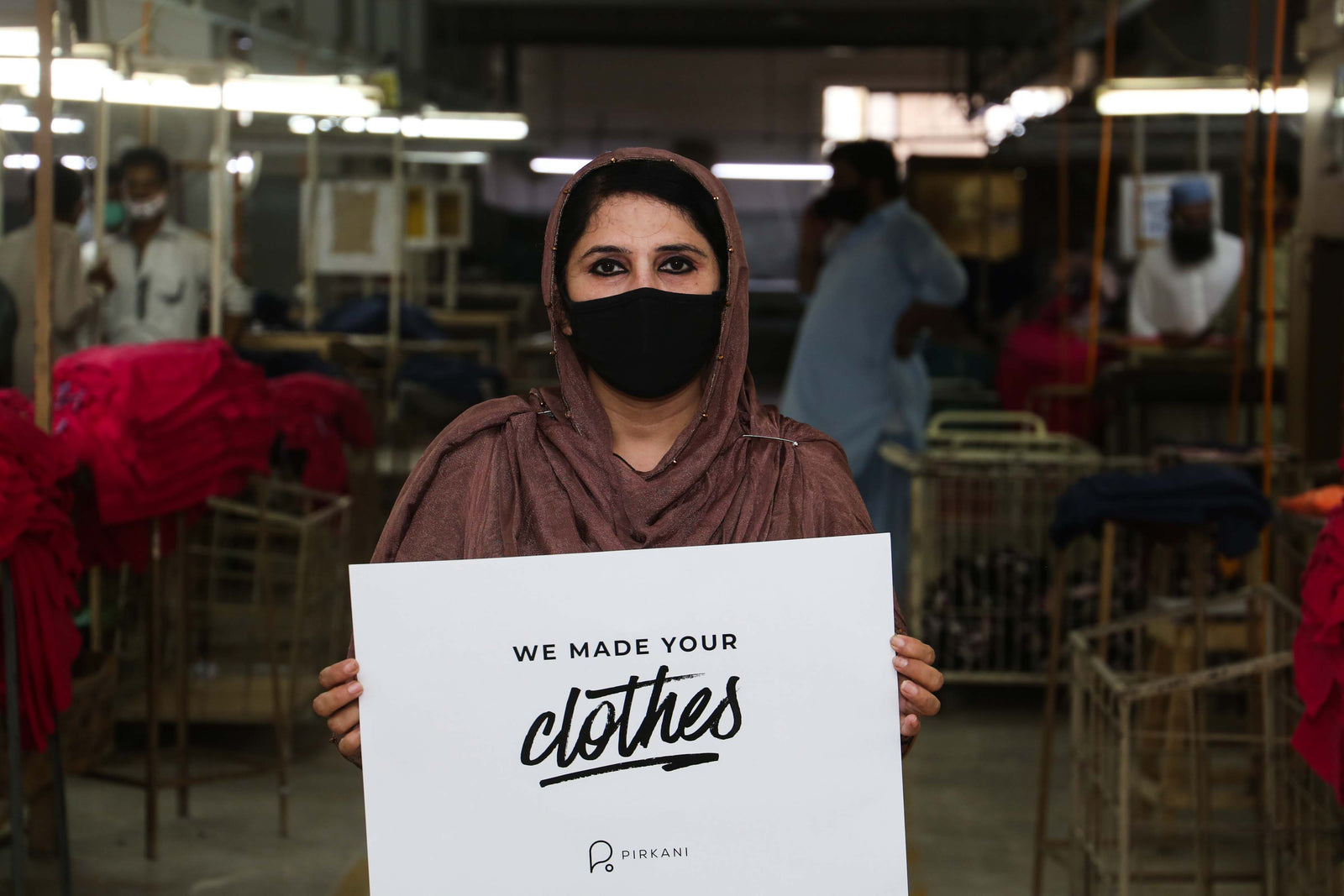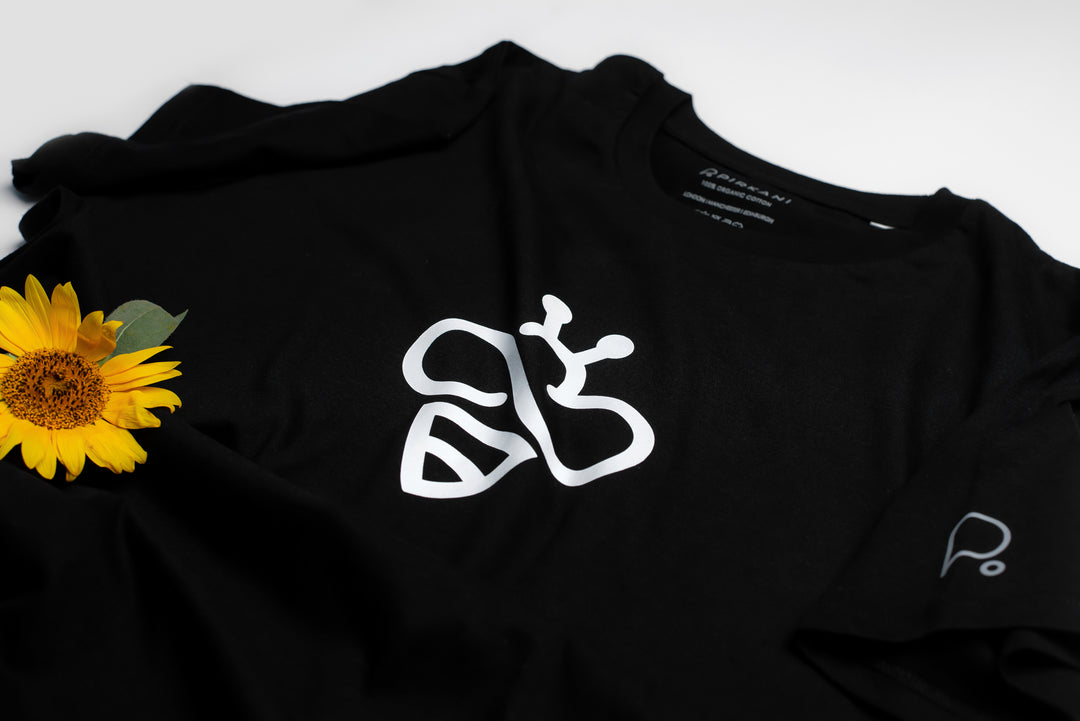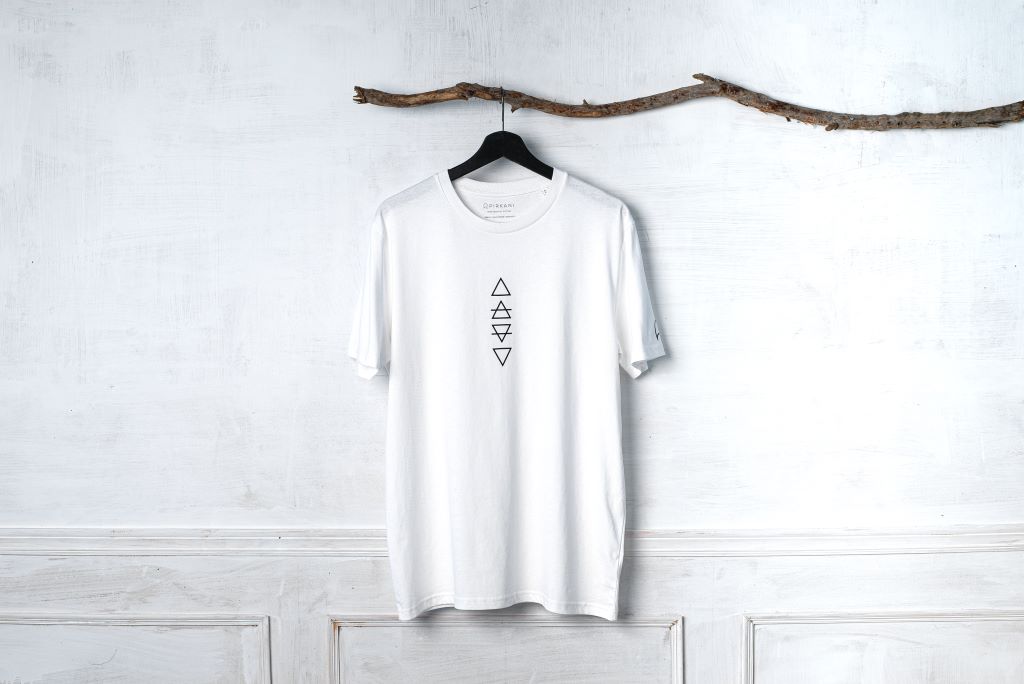Why is ‘Who Made My Clothes’ Important?

We’ve all heard of ‘slow fashion’, but have you heard of ‘ethical fashion’? Often, we focus on what our clothes are made of instead of considering ‘WHO’ makes them. You might think that machines make your clothing – taking a few presses of a button. But in reality, most of our apparel is made by employees who are often exploited under the guise of consumerism.
As we all become more educated on the environmental impact of our behaviour and consumerism, the spotlight has been put on the fashion industry. In recent years, we’ve started to ask questions about the sustainability of fabrics, and the phrase “fast fashion” entered our vocabulary.
The attention has gradually turned from the garment to the people and community behind it. The majority of garment workers across the world are women. They make up an estimated 80% of the garment-making industry. As the fashion industry expands at a rapid speed, these numbers are drastically increasing every year and impacting the socioeconomic lives of their families. It’s not just the people who make our clothes that one should think about – it’s their communities as well. Fast fashion impacts everyone around it.
Why does this matter?
Modern slavery is undeniably linked to the fast fashion industry. 40 million people are considered to be in ‘modern slavery’ across the world. 50% of these people are believed to work in ‘slave labour’. Manufacturing – including garment making – is the second largest industry for modern slavery cases.
-
1 in 4 of the victims of modern slavery are children.
-
The poverty, lack of education, and social conditions that these children and their parents face often lead them to work in the garment industry.
-
A machine didn’t make the jumper you’re wearing – a child in modern slavery could have made it.
That’s precisely why ethical fashion matters. It’s the ethics of a company and the social and environmental impact of its production.
Along with asking “who made my clothes”, other questions you should be asking include “how much did they earn?” and “are their working conditions safe?”.
The people who make your clothing are often subjected to abuse and violence, including working overtime in unsafe conditions. The more inexpensive your dress is, the lower the production cost will have been.
In 2012, more than 100 garment workers died in a fire in Bangladesh. It raised criticisms about the unsafe factory conditions that led to the electrical short circuit that caused the fire. Five months later, the Rana Plaza building collapsed, killing over 1,100 garment workers. The building had been evacuated the day before due to cracks in the infrastructure, but management insisted workers returned to meet shipping deadlines.
There are dozens of similar stories, all documenting the struggles faced by garment workers in developing countries.
It’s not just their working and living conditions that is an issue. These garment workers are paid significantly less than a living wage. Most fashion brands choose to export their production to developing countries or those with virtually non-existent workers’ rights.
A recent survey found that only 12% of brands (out of 219) had taken steps to pay their garment workers above the legal minimum wage in their country of production.
It’s not just the people who make your clothes that you should think about – it’s their communities as well. Fast fashion impacts everyone around it.
In India, 100 million people do not have access to clean drinking water. Cotton production takes up 85% of the water needed for the whole population. Another community that has been negatively impacted by fast fashion is China. It’s one of the country’s worst affected by chemicals and dyes in fashion garments. 80% of the groundwater from major river basins are labelled as “unsuitable” for human contact.
Another example of environmental damage that negatively impacts the community is the change of the Aral Sea. It’s just 15% of its former volume of water due to garment dyeing and cotton production.
Unfortunately, there’s no current equivalent to a ‘free trade’ symbol in the fashion industry. There’s not even an agreed definition for ‘ethical fashion’ either.
Brands use different terms to describe their supply chains and incorporate buzz words like “ethical production”. Before you shop from a brand, take a second to visit their website and see what information they have about their supply chain.
Companies that have an ethical supply chain will always be upfront and transparent about it with their customers. It’s a significant selling point and not something they’ll hide away in the fine print.
Part of the uphill battle about ethical fashion involves the consumer actively asking brands about their supply chain. Brand transparency is key to changing the fashion industry.
When we think about ‘sustainable fashion’, it truly is the intersection between ‘ethical fashion’ and ‘environmentally-friendly fashion’. Changing how we produce clothes will prevent incidents like the Aral Sea’s developing drought or China’s poisoned water systems. There will no longer be a race to the bottom for price and working standards with slow fashion.
The next time you think about eco-friendly fashion, don’t forget that there’s a human side to it as well. Ethical fashion is just as much about humans and the environment. Millennials and Gen Z are leading the way with adopting ethical fashion. Research has shown that the “social first” mindset of the younger population means they’re more aware of the ethical and environmental questions around the sustainability of their fashion choices.
This demographic wants to find fashion brands that align with their values. Once they find them, they’re loyal for life. 58% of Gen Z choose a brand’s purpose, values, and mission as their most important trait.
Sustainability – with ethical and eco-friendly fashion – is at the future of the industry. You have a role to play in making this change happen.
The next time you go in search of a dress for a night out or a new activewear set, stop and think. Adopting a slow-fashion approach to your closet protects the environment and is kinder to the world around us. If we all make the shift to slow and ethical fashion, the industry will follow suit.






Leave a comment